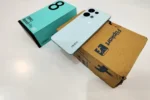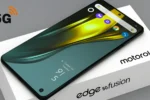The Rare $2.5 Billion Bicentennial Quarter : In the world of coin collecting, a simple pocket change can sometimes hold unimaginable value. One of the most fascinating examples is the Bicentennial Quarter, a coin minted in 1975–1976 to celebrate America’s 200th anniversary of independence. While millions of these coins were circulated, a few rare variants have gained legendary status, with collectors and experts suggesting that certain rare Bicentennial Quarters could be valued in the billions of dollars collectively, with some individual coins worth hundreds of thousands—or even more.
But could one of these hidden treasures still be sitting in your pocket, purse, or coin jar? Let’s take a closer look.
The History of the Bicentennial Quarter
The U.S. Mint released the Bicentennial Quarter in 1975 and 1976 as part of a special coinage series honoring America’s 200th birthday. Unlike regular Washington quarters, these coins featured a unique reverse design by Jack L. Ahr, showing a colonial drummer boy with a torch of victory and 13 stars.
Key facts:
Issued in 1975–1976 (none bear the date “1975”)
Designed by Jack L. Ahr
Special 1776–1976 dual date on the obverse
Minted at Philadelphia, Denver, and San Francisco Mints
Why Is It So Valuable?
Not every Bicentennial Quarter is worth a fortune. Most circulated ones are worth only 25 cents to a few dollars. However, rare errors, proof coins, and silver editions can fetch extremely high prices.
The $2.5 billion figure often quoted in coin-collecting circles refers to the estimated collective market value of the rarest Bicentennial Quarters in existence, particularly those with minting errors and extremely limited production runs.
Some rare variations include:
Silver-clad proof quarters minted in San Francisco
Double-die errors
Off-center strikes
High-grade (MS-67 and above) certified coins
How to Identify a Rare Bicentennial Quarter
If you suspect you have a Bicentennial Quarter that may be rare, look out for these signs:
| Feature | Why It’s Valuable | Estimated Value |
|---|---|---|
| Silver Composition (40%) | Found in proof and collector’s sets | $50 – $6,000+ |
| Double-Die Error | Minting mistake creates doubled design | $2,000 – $25,000 |
| Off-Center Strike | Misaligned design from minting error | $1,000 – $10,000 |
| High-Grade MS-67+ | Perfect, uncirculated condition | $10,000 – $60,000 |
| Unique Collector’s Proofs | Extremely limited production | $100,000+ (auctioned) |
Could It Be in Your Pocket?
Yes—it’s possible, though highly unlikely. Most rare Bicentennial Quarters are in the hands of collectors or auction houses. However, there have been stories of people discovering rare coins in loose change, garage sales, or inherited collections.
If you find a 1976 Bicentennial Quarter, check for:
“S” mintmark (San Francisco proofs)
Unusual shine or silver tone
Visible design errors (doubled numbers, off-center strikes)
Mint-state condition (little or no wear)
Auction Records
Over the years, some Bicentennial Quarters have fetched astonishing prices:
A proof silver Bicentennial Quarter (graded PR70) sold for over $13,500 at auction.
An error Bicentennial Quarter with double-die obverse sold for $25,000.
Rare collector’s editions continue to rise in value, with some projected to cross six figures.
Why Collectors Love the Bicentennial Quarter
Historical Significance: Represents the 200th anniversary of U.S. independence.
Unique Design: The drummer boy reverse is one of the most beloved designs in U.S. coinage.
Investment Potential: Rare versions continue to increase in value.
Nostalgia: Many Americans remember finding these quarters in circulation in the late 1970s.
Conclusion
The Bicentennial Quarter is a perfect example of how everyday pocket change can hide extraordinary value. While most quarters from 1976 are worth only face value, rare errors, silver proofs, and high-grade coins can sell for thousands of dollars. Some of these coins together may even hold a collective market value in the billions.
So next time you empty your pockets, take a closer look—because your 25-cent coin could actually be a hidden treasure worth a fortune.
Q1. What makes the Bicentennial Quarter rare?
gMinting errors, silver proofs, and uncirculated high-grade versions make some Bicentennial Quarters rare.
Q2. Are all 1976 Bicentennial Quarters valuable?
No, most are worth only 25 cents, but rare variants can be worth thousands.
Q3. How can I check if my Bicentennial Quarter is valuable?
Look for silver composition, mint errors, “S” mintmark, and high-grade condition.
Q4. What is the highest price paid for a Bicentennial Quarter?
Some rare error coins and proofs have sold for $25,000+ at auction.
Q5. Where can I sell a valuable Bicentennial Quarter?
You can sell it through coin dealers, online auction sites (like eBay), or major numismatic auction houses.





